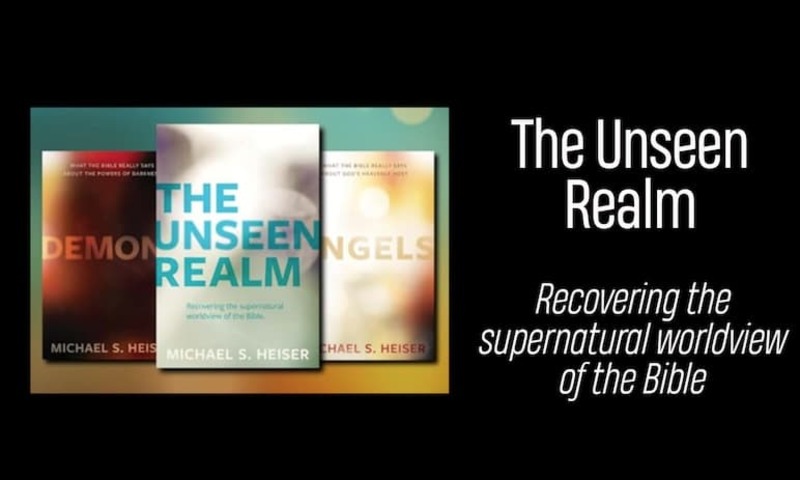In two previous posts, I looked at what Michael Heiser taught and which biblical texts he appealed to. In this post, I am reviewing other perspectives of his approach and offering my own opinion about his work.
Other Old Testament scholars have a variety of opinions on these topics. Mainstream Old Testament scholarship tends to take an evolutionary approach to Old Testament religion in which Israel began as a polytheistic religion that gradually shifted to strong monotheism. Hence, this divine council motif was a vestige of the early polytheism that was not fully cleaned up by later editors. In HeiserŌĆÖs academic articles he did a great job showing the problems with this evolutionary approach to Israelite religion. However, he took the best parts of this scholarship and incorporated it within a theologically conservative framework in the way I described above.
In general, my impression is that many evangelical Old Testament scholars agree with the broad outline of HeiserŌĆÖs view of the spirit realm, including his readings of Psalm 82 and Deuteronomy 32. Genesis 6 sees more diversity among evangelical Old Testament scholars, but my guess is that even here the angelic view of the sons of God is the most common view, especially given the apkallu material. I do not know about many other Old Testament scholars, but HeiserŌĆÖs work was important for me in thinking through these issues about the spirit realm and I am indebted to his scholarship (though I have mainly engaged only his more academic work and listened to very few of his podcasts or videos).
While I agree with much of what Heiser says, I have a few concerns with his teaching. My main concern is that heŌĆÖs overly confident about many of his conclusions and he is too totalizing about those conclusions. When I read Heiser I donŌĆÖt often say to myself ŌĆ£that is clearly wrong!ŌĆØ Instead, I find myself generally saying ŌĆ£thatŌĆÖs an interesting possibility.ŌĆØ Even in places where I agree with Heiser, such as on the identity of the sons of God in Genesis 6:1-4, I think that he is much too confident of his interpretation of such difficult texts. This confidence then gives him warrant to use this less clear text to understand other texts. One primary example of this is his argument that the sons of God episode explains the Canaanite conquest: ŌĆ£The point is that the rationale for kherem annihilation was the specific elimination of the descendants of the Nephilim.ŌĆØ[10] While he highlights some interesting connections, the Old Testament does not provide this kind of reasoning for the destruction of the Canaanites in the main texts about it (such as Deuteronomy 7:1-5). To use an unclear text like Genesis 6 to explain another Old Testament episode that has much more explanation provided is to use an illegitimate filter.
Indeed, this filter is ironic given that Heiser is suspicious of church tradition because it was a foreign filter forced onto the text. At one point he says, ŌĆ£Yet there is a pervasive tendency in the believing church to filter the Bible through creeds, confessions, and denominational preferences.ŌĆØ[11] I have similar concerns about reading the Bible in light of church tradition without accounting for the historical context of the Bible. But we all have reading strategies (otherwise known as filters). HeiserŌĆÖs could be labelled a ŌĆ£1 Enoch reading strategy,ŌĆØ which he would defend by showing how 2 Peter and Jude employed 1 Enoch in regards to Genesis 6. But Heiser goes well beyond that by using 1 Enoch as an interpretive help in all kinds of ways when reading both the Old and New Testament. For example, partly inspired by 1 Enoch, he takes many references to Bashan and Hermon as code for a subtle reference to the Genesis 6 story. In one place he says ŌĆ£Lastly, aside from Bashan being the gateway to the underworld, the region has another sinister feature identified in the Deuteronomy 3 passage: Mount Hermon. According to 1 Enoch 6:1-6, Mount Hermon was the place where the sons of God of Genesis 6 descended when they came to earth to cohabit with human womenŌĆöthe episode that produced the Nephilim.ŌĆØ[12] As an example of this reading strategy, he sees the ŌĆ£cows of BashanŌĆØ in Amos 4:1-2 as possible deities themselves.[13] He himself recognizes that this is only a possibility, but this is a good example of a transferring too much connotation of one text onto a word and then importing that into another text (sometimes called illegitimate totality transfer).
I think that the effect of these concerns is partly what explains HeiserŌĆÖs popularity: he offers people secret knowledge that they canŌĆÖt find anywhere else. The tagline for his Unseen Realm website implies this: ŌĆ£If you've always suspected there's more to the Bible than you've been told, you're right.ŌĆØ[14] I agree that he has some material that needs to be talked about more. But IŌĆÖm not sure that the church has been hiding this material. For whatever reason, God did not decide to give us that much information about the spirit realm. He has left us hints, and Heiser has done an excellent job learning as much as we can from those hints. But we canŌĆÖt make the supernatural world of spirit beings more important than it is in Scripture. Pastors sometimes donŌĆÖt focus on this material because they find it confusing or weird. But more often they are simply focusing on what the Bible is focusing on.
Nor do I think that this material fundamentally changes all that much about the Christian faith. It helps to fill in some gaps about the greater world we live in and is clearly interesting. But the variety of application points Heiser brings out can usually be arrived at through other means than a divine council worldview.
I highly recommend the work of Michael Heiser to those interested in the details of the Bible and who want to learn more about the spirit world that exists all around us. Now that Heiser has passed away, the challenge for those who follow in his footsteps will be how to honor HeiserŌĆÖs legacy without making him an infallible cult founder. Heiser would have been the first to say that for those who honor Heiser, the way to answer questions is not ŌĆ£What did Heiser say,ŌĆØ but ŌĆ£What does the Bible say?ŌĆØ I remain indebted to HeiserŌĆÖs scholarship and greatly enjoy teaching on the topics he focused on. However, read his work as a call to return to Scripture in greater depth, not as a work that provides all the answers.
Notes
[10] Heiser, The Unseen Realm, 210ŌĆō11.
[11] Heiser, The Unseen Realm, 16. Italics in original.
[12] Heiser, The Unseen Realm, 201.
[13] Heiser, The Unseen Realm, 290.
Accessed March 3, 2025.
 51┬▄└“
51┬▄└“

.jpg)
.jpg)

